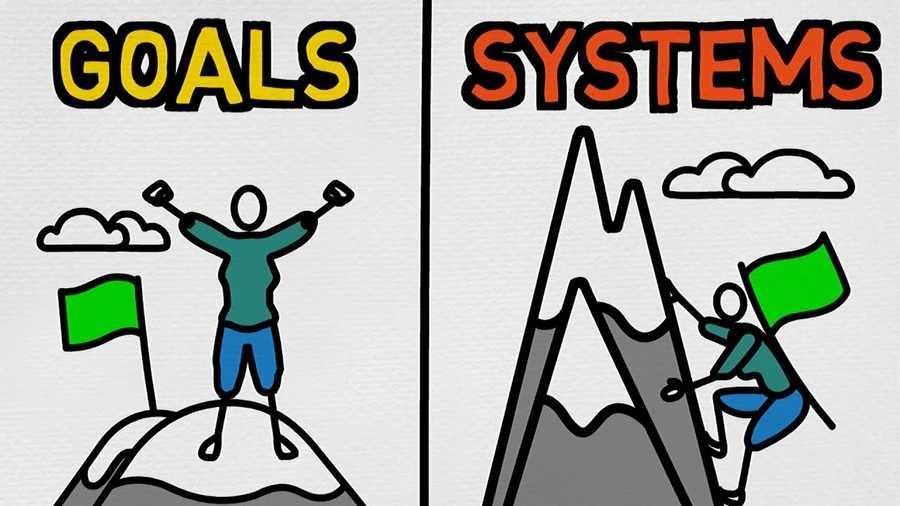Systems vs. goals
- If you do something every day, it’s a system.
- If you’re waiting to achieve it someday in the future, it’s a goal.
3.29K
9.46K reads
CURATED FROM
IDEAS CURATED BY
The idea is part of this collection:
Learn more about productivity with this collection
How to manage workplace stress
How to prioritize and make better decisions
How to learn anything fast
Related collections
Similar ideas to Systems vs. goals
Goals Vs Systems
A goal is a destination, a system in the journey to get there:
- Goals are one-time events: you reach them and then you're done.
- Systems represent the way you're reaching your objectives: the processes you follow regularly th...
Choose Systems Over Goals
- If you achieve your goal, you celebrate and feel terrific, but only until you realize you just lost the thing that gave you purpose and direction. Goal-oriented people exist in a state of continuous presuccess failure at best, and permanent failure at worst if things never ...
Systems Instead Of Goals
Setting a goal is easy, just like marking a date on the calendar. The real challenge is always the willingness to accept what we need to do daily to achieve those goals.
We need to design a system that has to be practiced daily, as the commitment to a process provi...
Read & Learn
20x Faster
without
deepstash
with
deepstash
with
deepstash
Personalized microlearning
—
100+ Learning Journeys
—
Access to 200,000+ ideas
—
Access to the mobile app
—
Unlimited idea saving
—
—
Unlimited history
—
—
Unlimited listening to ideas
—
—
Downloading & offline access
—
—
Supercharge your mind with one idea per day
Enter your email and spend 1 minute every day to learn something new.
I agree to receive email updates


